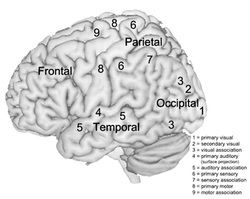 I have had mixed feelings when I hear a student say "My brain is hurting" or "I am sweating, this is a real workout" after a half hour lesson. Educators know "Learning" is optimized when students are at the correct level of challenge, when the task they are asked to do is not too easy nor too hard. It is a fine line to walk for teachers. as we "chunk" steps, we may give tasks that may seem boring or steps that would need further "break down." On one hand I am glad to hear that my student was totally engaged and challenged, on the other hand, I have to gauge whether it was too much, predict whether they will feel overwhelmed or excited, and learn how this challenge may affect intrinsic reward and motivation. Here's an example of a challenge: sometimes, for a new piece, after helping a student hum it by playing along for him or her, help him or her decipher sequences, cadences, general structure and technically difficult bars, I ask the student to play slowly through a section (its length would depend on their level of sight-reading.) After a few repeats, I put a sticky note blocking out the view of a bar or two, then I ask them to play again. Most new students would react with a "What?! you're kidding me!!!" look. I then reassure them that this is just a game and that if they can't remember anything and don't want to play, I would take the sticky notes off. I explain that the game is for us to learn more about how their brain works, whether their brains are stronger in visual, audio or kinesthetic memory. Most students end up being pleasantly surprised at how much they remember. "I never knew I could memorize so fast" or "let's put more sticky notes on!" are some of the comments I receive after this game. If students stumble, I give them a cue, humming the top line, or delivering structural cues. When they actually find the next notes after the cues, they will most likely remember those ones forever. Those notes found after moments of frustrations will be retained in their long-term memory pathways, because the mind is peculiar, memory works best with emotions. Deep Practice is a way of practice, just as Zen is a way of life. One can apply it in many ways. Memory is just one aspect of Deep Practice. If you don't challenge yourself how would you know how much you know? If you don't practice with "all you've got" how would you know if the finger won't slip when you put all emotions in while on stage? Other aspects of Deep Practice will be discussed in my future blogs, they include "posture and body awareness," "emotional engagement," "spontaneity and creativity," and "self-monitoring." When one is so totally absorbed into what one is doing that the physical world around us disappears, that is a sign of Deep Practice. In a sense, it is similar to what Csikszentmihalyi calls "Flow." I always found it serendipitous that his name has the word "zen" in it. He defines it as having the characteristics of "effortlessness," whereas I define Deep Practice as a fully engaged brain, one that is so engrossed with the beauty of it all, that surroundings fade into the background. The state of Deep Practice, if cultivated, is the state of BEING FULLY IN THE PRESENT MOMENT, and that is the best state for performers, because without the past or the future, one can't help but to fall in love with the beauty of the sound one is creating.
1 Comment
|
AuthorLook for Mindful Music Academy Facebook page. Archives
March 2020
Categories
|
||||||

 RSS Feed
RSS Feed